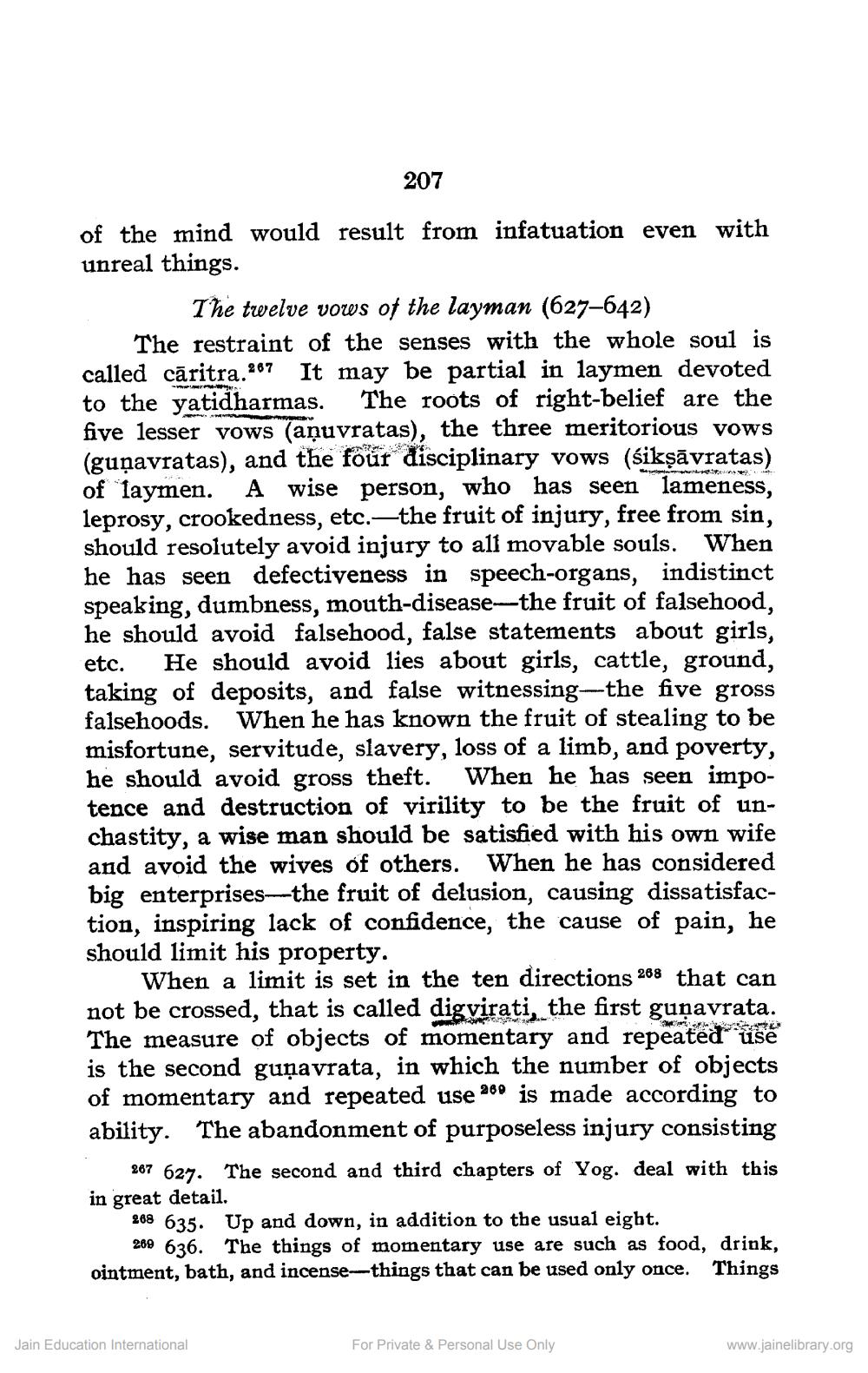________________
207
of the mind would result from infatuation even with unreal things.
The twelve vows of the layman (627–642)
The restraint of the senses with the whole soul is called caritra.267 It may be partial in laymen devoted to the yatidharmas. The roots of right-belief are the five lesser vows (aņuvratas), the three meritorious vows (gunavratas), and the four disciplinary vows (śikṣāvratas) of laymen. A wise person, who has seen lameness, leprosy, crookedness, etc.-the fruit of injury, free from sin, should resolutely avoid injury to all movable souls. When he has seen defectiveness in speech-organs, indistinct speaking, dumbness, mouth-disease-the fruit of falsehood, he should avoid falsehood, false statements about girls, etc. He should avoid lies about girls, cattle, ground, taking of deposits, and false witnessing-the five gross falsehoods. When he has known the fruit of stealing to be misfortune, servitude, slavery, loss of a limb, and poverty, he should avoid gross theft. When he has seen impotence and destruction of virility to be the fruit of unchastity, a wise man should be satisfied with his own wife and avoid the wives of others. When he has considered big enterprises-the fruit of delusion, causing dissatisfaction, inspiring lack of confidence, the cause of pain, he should limit his property.
When a limit is set in the ten directions 268 that can not be crossed, that is called digvirati, the first guṇavrata. The measure of objects of momentary and repeated use is the second guṇavrata, in which the number of objects of momentary and repeated use 200 is made according to ability. The abandonment of purposeless injury consisting
267 627. The second and third chapters of Yog. deal with this in great detail.
268 635. Up and down, in addition to the usual eight.
209 636. The things of momentary use are such as food, drink, ointment, bath, and incense-things that can be used only once. Things
Jain Education International
For Private & Personal Use Only
www.jainelibrary.org




